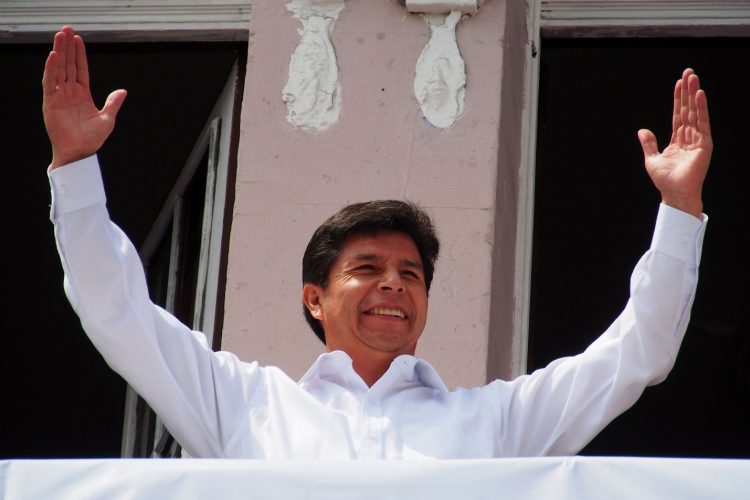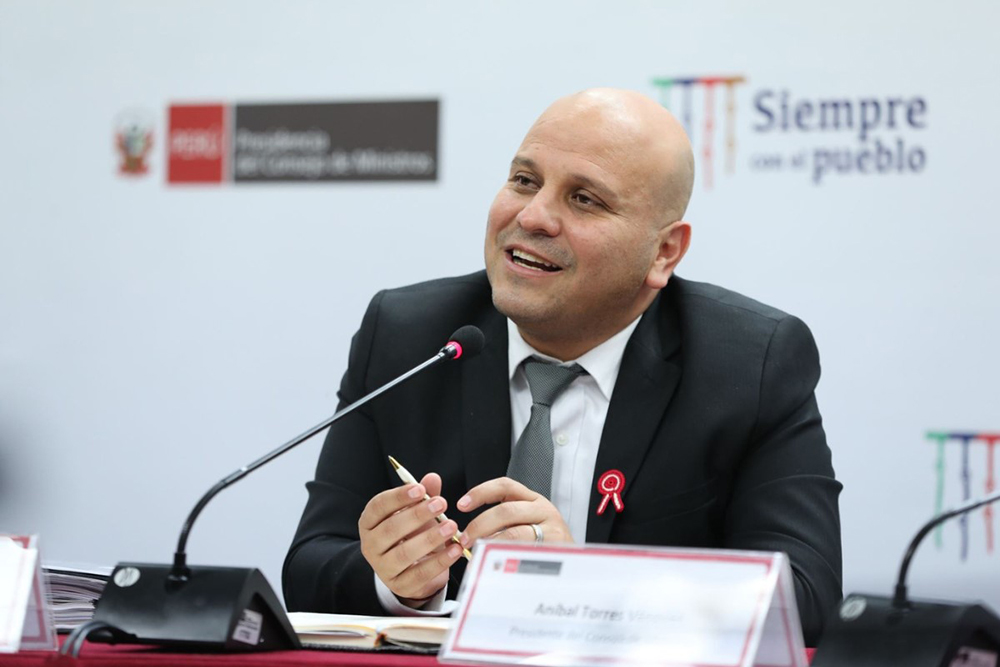LIMA, (Reuters) – Members of former President Pedro Castillo’s Cabinet say he was planning his impeachment trial defense and appeared confident he would win – right up until his explosive speech in which he tried to illegally dissolve Congress, sparking his dramatic ouster and arrest.
The testimonies come from two ministers who were in the presidential palace when Castillo went on the airwaves just before noon local time on Dec. 7, trying to wrest control of the legislature.

His move, which broke constitutional norms, sparked rapid resignations from his Cabinet and criticism from all sides that he was trying to carry out a “coup” to remain in power. By the evening, he was in jail, where he remains – arrested over charges of “rebellion” – and Peru had a new president.
Even for politically volatile Peru, it was a dramatic and tense day that has led to deadly protests by Castillo supporters.
Castillo, a former teacher who was elected as the candidate for a far-left party, had long butted heads with the conservative-dominated Congress and was facing his third impeachment trial in just over 16 months in office.
His allies initially expected him to survive, they said. A successful vote to remove him needed the approval of two-thirds of the 130 lawmakers – 87 votes.
“We did a vote count, which we cross-referenced with various sources, and we calculated there would be 73 votes in favor, it did not reach 87 votes,” Alejandro Salas, Castillo’s final minister of culture, told Reuters.
Salas said plans had been made for ministers to accompany Castillo at around 2pm on Dec. 7 to walk from the presidential place to Congress, where he would defend himself ahead of the vote.
But in the morning, they were abruptly summoned to come early to the palace.
With other ministers, Salas was in the Quiñonez ante room when Castillo appeared unexpectedly live on TV and announced he was shuttering Congress by decree and creating a government of exception. Salas was then allowed in to see him.
“The only thing he told me was that he did not have the votes,” said Salas.
Salas said he told Castillo that what he had done was illegal and he announced his resignation shortly after.
For Salas, the speech was the final nail in Castillo’s political coffin. “Pedro Castillo committed suicide with a message,” he said.
In the wake of the speech, Castillo’s economy minister also resigned, joining the chorus calling his actions a “coup”. Lawmakers shrugged off the shutdown attempt and held their impeachment vote early.
By 2pm, they had voted to remove Castillo – with 101 votes in favour. Then Vice President Dina Boluarte, who had also criticized Castillo, was sworn into office as the new leader just before 4pm.
According to Salas and Roberto Sanchez, Castillo’s then trade minister, Castillo made the speech seeking to dismiss Congress from his presidential offices. They said Prime Minister Betssy Chavez, former PM and close ally Anibal Torres, and the then interior and defense ministers were all present, as were television crews.
Reuters could not reach Chavez and Torres for comment.
Sanchez said that a team of ministers and lawyers, including himself, had met until 11pm the night before – just 12 hours earlier – to hone Castillo’s planned speech to Congress to defend himself against the allegations of “moral incapacity”.
The president joined the group for a few minutes and went over what he would say.
On Wednesday morning, Sanchez said, Prime Minister Chavez sent a WhatsApp message for all the ministers to come early to the palace.
“We understood that we were going to the Congress. That’s what I assumed,” Sanchez said. “We wondered what happened, nothing was said before.”
Sanchez announced his resignation about an hour after the speech, although he continues to blame Congress for precipitating the situation.
The former trade minister said the dramatic day underscored the destabilizing nature of an ongoing conflict between the executive and Congress in Peru, which has seen six presidents in five years and seven impeachment attempts.
“This is a crisis of the fragility of the Peruvian political system. We have gone from a presidential system to parliamentary authoritarianism,” he said.
Ivan Merino, Castillo’s energy minister in 2021 but not in the Cabinet at the time of his ouster, said that the leftist former leader was influenced heavily by Torres and Chavez. Torres is also under investigation over rebellion charges.
“They were very radical on political issues because they always went to confrontation,” said Merino. “The president was an impressionable person and what happened (on Dec. 7) was an act induced by those right in his inner circle.”









